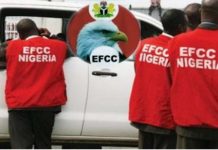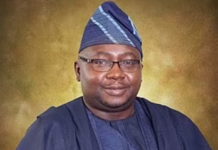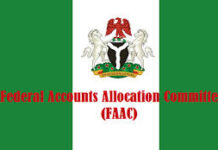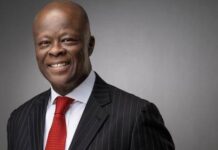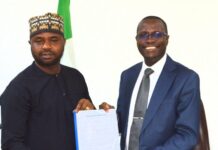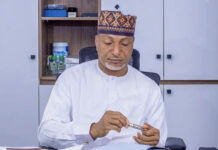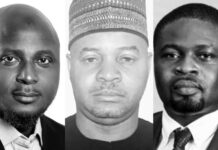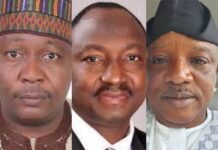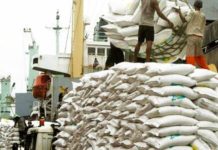Top 12 Performing Ministers in Tinubu’s Administration
As it is said in local parlance, “jungle don dey mature, and it is now the survival of the fittest.” Even though President Bola Ahmed Tinubu has four years to implement his Renewed Hope agenda, he told his Ministers ab initio that they won’t have the luxury of time and space before he starts asking questions about their performance and doing the needful for the ones who have no business in the Federal Executive Council (FEC).
While swearing in the Ministers last year, President Tinubu said that Key Performance Indicators (KPIs) would be deployed to assess their impact, adding that Nigerians expect so much from them and can’t afford to fail. The President didn’t hesitate to state that on behalf of Nigerians, he would have to wield the big stick when necessary.
The last eight months have been very tough on Nigerians as they have to endure the consequences of the President’s choices in fuel subsidy removal and floatation of the Naira.
Amid the hardship Nigerians are going through, the Economic Confidential team observes that some cabinet members maintain undignified silence as if they don’t owe the people any form of accountability.
Meanwhile, some Ministers have shown competence and capacity in their respective duties. Beyond their pragmatic initiatives and impactful programmes, the performing ministers also deploy effective media relations and strategic stakeholder engagements to help douse tension and calm frayed nerves.
Therefore, in this special report, Economic Confidential lists the top 12 performers whose efforts and accomplishments as Ministers are not hidden. They also use appropriate media channels to project, promote and defend the Tinubu’s administration.
………………………………………………………
1. Nyesom Wike, Minister of Federal Capital Territory

Within a few months of assumption of office, the Minister of the Federal Capital Territory, Nyesom Wike, established the FCT Civil Service Commission to guarantee the career progression of civil servants within the territory.
Rather than executing new projects, the Minister mobilised and instructed contractors to complete ongoing projects, especially road, rail and township projects or face sanctions.
Prioritising security measures and revenue generation to safeguard residents and fund infrastructural development within the FCT, Wike is also restoring the original Abuja master plan and tackling insecurity by getting rid of illegal structures.
………………………………………………………
2 Wale Edun, Minister of Finance and Coordinating Minister of the Economy

The finance minister, Wale Edun, initiated various fiscal reforms to revamp the economy after removing fuel subsidies that were costing the country over N400bn monthly.
Apart from spearheading alternative ways for generating more revenues, he has ensured equitable and transparent monthly disbursements from the federation account when due to the tiers of government.
He is also behind expanding the scope of direct cash transfer schemes to millions of more households to cushion the rising cost of living.
………………………………………………………
3 Health and Social Welfare Minister Muhammed Ali Pate,

Professor Muhammed Ali Pate, the Coordinating Minister of Health and Social Welfare, has attracted various development partners to support Nigeria’s healthcare system. They include GAVI, The Susan Thompson Buffett Foundation, etc.
Besides introducing the Human Papillomavirus (HPV) vaccine into the routine immunisation system, his Ministry launched lifesaving initiatives such as Multiple Micronutrient Supplements (MMS) to improve quality maternal health outcomes.
In addition to that, the professor of public health facilitated the signing of MoU between FG and Afreximbank in which Nigeria will get $1bn deal to finance Healthcare as the country records significant progress in the elimination of Neglected Tropical Diseases (NTDs).
………………………………………………………
4. Olubunmi Tunji-Ojo, Minister of Interior

Olubunmi Tunji-Ojo, the Minister of Interior, cleared more than 200,000 backlogs of international passports he met within a few weeks of his appointment and ensured the speedy implementation of automation of the passport application process.
A former member of the House of Representatives, Tunji-Ojo also facilitated the E-gates system at the international airports aimed at reducing passengers’ physical contact with immigration officers and facilitating movement.
………………………………………………………
5 Mohammed Idris Malagi, Minister of Information and National Orientation,

The Information Minister, Alhaji Mohammed Idris Malagi, hosts inter-ministerial press briefings to boost accountability in governance. He also deploys sound PR strategies in timely, responsible stakeholder engagements while addressing burning national issues with facts and sincerity of purpose. He doesn’t abuse, blackmail or bully government critics and opponents in his engagements.
Read Also:
Malagi, a publisher and PR specialist, in his effort to rebrand Nigeria’s image, unveiled a National Value Charter that will provide clear guidelines on the rights of citizens on the government and the government’s demands on the citizens.
………………………………………………………
6. Adegboyega Oyetola, Minister of Marine and Blue Economy

Oyetola recognises the immense potential of the blue economy, which is estimated globally to be worth more than $1.5 trillion annually. Given Nigeria’s vast coastline and maritime resources, he has positioned the country as a significant player in the sector, contributing to revenue generation and job creation.
Oyetola also unveiled plans to generate $20 billion annually within the blue economy. This ambitious goal aligns with strategic development initiatives within the maritime sector.
His vision includes creating two million jobs annually through sustainable marine activities.
………………………………………………………
7 Barrister Ohanenye Uju Kennedy, Minister of Women Affairs

The Women Affairs Minister, Barrister Ohanenye Uju Kennedy, is championing the fight against gender-based violence, GBV, through the initiation of reforms in the criminal justice system. She also advocates the inclusion of women in the nation’s peace-building process to give them a sense of belonging and achieve social cohesion.
Under the Women Economic Empowerment (WEE) concept, the minister hosts capacity-building programmes to equip economically active women with machinery and finances to generate sustainable income and uplift and protect their families.
………………………………………………………
8 Dele Alake, Minister of Solid Minerals

After initiating his agenda of restoring investor confidence and renewing global interest in the sector, Dele Alake took decisive actions, including revoking licenses, establishing enhanced security measures and international collaborations towards the protection of the industry.
He also launched revised guidelines for community development agreements (CDA) to ensure that host communities benefit maximally from mining operations while government royalties for economic development are safeguarded.
The Ministry signed a memorandum of understanding (MOU) with the German firm Geo Scan GmbN for the deployment of cutting-edge proprietary technology capable of exploring mineral resources up to 10,000 metres below the earth’s surface, with no cost to Nigeria.
………………………………………………………
9. Doris Uzoka-Anite, Minister of Industry, Trade and Investment

Under her leadership, the Ministry of Industry, Trade, and Investment secured $30 billion in foreign investment commitments within eight months.
Additionally, she facilitated agreements with Germany and the UK for artisan licensing skills, enhancing youth employability.
………………………………………………………
10. David Umahi, Minister of Works

Concerned over corrupt practices and poor handling of projects, the Minister read the riot act to contractors on timely delivery and threatened to punish defaulters.
Besides ensuring road contractors meet the required standard within the stipulated periods, David Umahi formed a team of retired military and security personnel to protect and secure construction sites from criminals. This was to tackle incessant complaints by contractors about the safety of their workers and equipment at the sites.
Similarly, he introduced concrete road technology over asphalt in most carriageways and continuous maintenance because concrete offers superior durability, requires less maintenance and leads to long-term cost savings. According to him, concrete produces less environmental pollution, and cars run more efficiently on the surface.
………………………………………………………
11 Festus Keyamo, Minister of Aviation and Aerospace Development

Festus Keyamo, the Minister of Aviation and Aerospace Development has prioritised strict compliance with safety regulations in the aviation industry and enhanced infrastructure especially upgrading airports, runways, and other critical facilities to support safe and efficient air travel.
Recognising the importance of skilled personnel in the aviation sector, the Ministry develops human capacity within the industry, ensuring that professionals receive adequate training and support.
………………………………………………………
12 Dr. Bosun Tijani, Minister of Communications, Innovations and Digital Economy

Besides launching a start-up portal to drive digital innovation, Bosun Tijani launched the 3MTT programme through NITDA, which aims to develop 3 million technical talents by 2025, in line with the President’s vision for making Nigeria a global hub for digital jobs.
Through a series of engagements, the Ministry has attracted more investors for different projects in the sector, including laying fibre infrastructure worth approximately $2 billion across the country.

